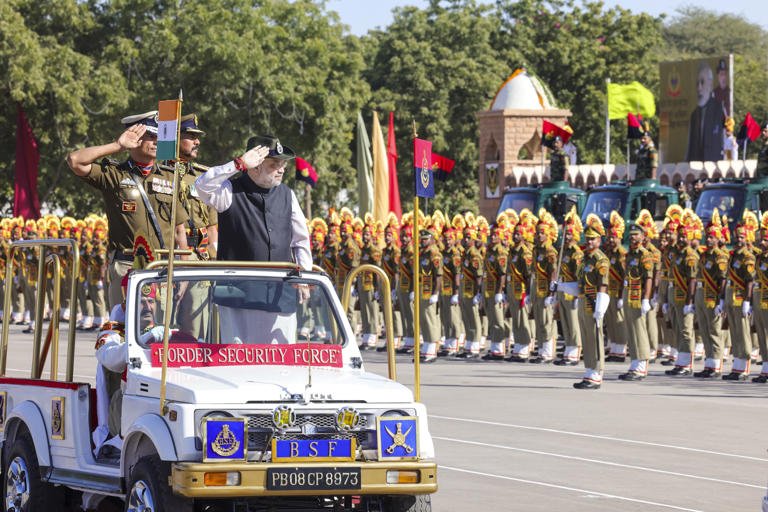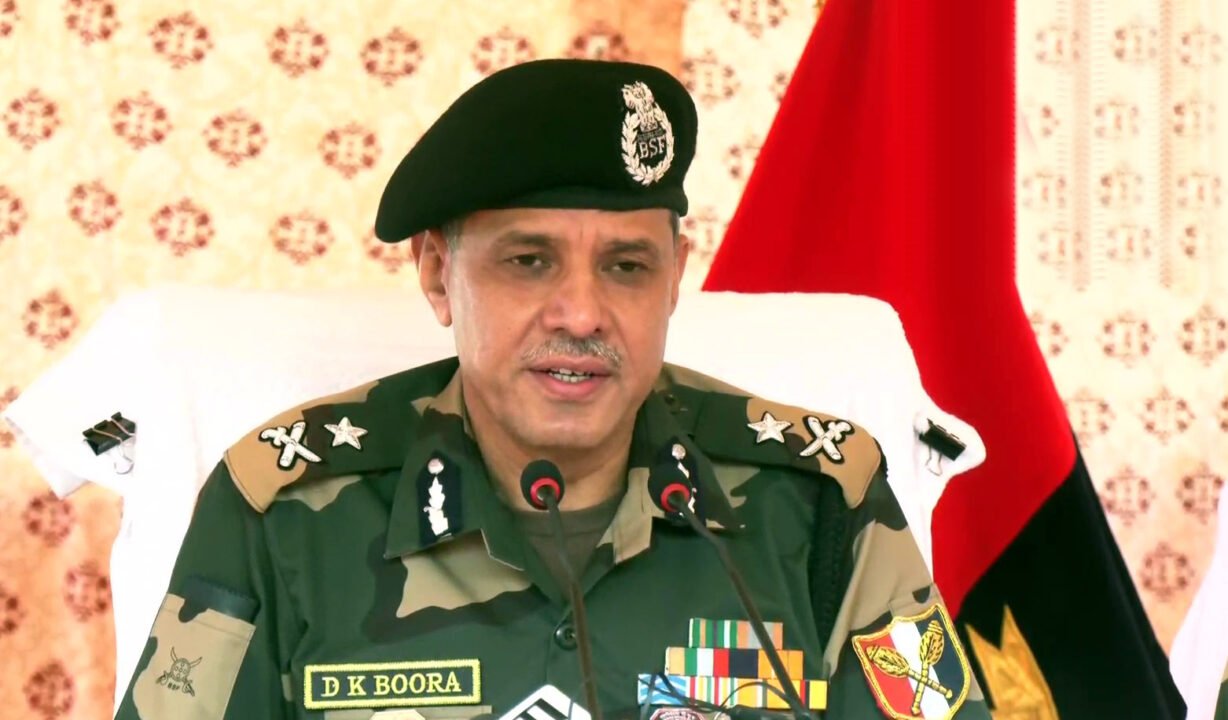JODHPUR, Dec 8: Union Home Minister Amit Shah on Sunday said India will soon create a comprehensive anti-drone unit to secure its borders as the “menace” of unmanned aerial vehicles is going to get serious in the coming days.
Addressing BSF troops at the 60th Raising Day event of the force here at its training camp, about 300 km from the India-Pakistan border, Shah said the initial results of a “laser equipped anti-drone gun-mounted” mechanism have been encouraging.
This has led to an increase in drone neutralisation and detection cases, up from 3 per cent to 55 per cent, along the India-Pakistan border in Punjab, he said.
“The drone menace is going to get more serious in the coming days… We are tackling this issue in a ‘whole of government’ approach with the border guarding forces, defence and research organisations and the DRDO joining hands.
“We are going to create a comprehensive anti-drone unit for the country in the coming time,” Shah said.
According to official data, more than 260 drones have been downed or recovered from India’s border with Pakistan this year as compared to about 110 in 2023.
The maximum number of such interdictions of drones carrying arms and drugs have taken place in Punjab and very few in Rajasthan and Jammu.
The minister reviewed the ceremonial parade, took salute and awarded medals to gallantry award winners and gave away some other decorations.
The Border Security Force (BSF), which has a strength of about 2.65 lakh personnel, was raised on December 1, 1965. It is primarily tasked with guarding more than 6,300 kms of Indian fronts with Pakistan and Bangladesh apart from rendering a variety of duties in the internal security domain of the country.
Shah said the ongoing Comprehensive Integrated Border Management System (CIBMS) for securing India’s borders with Pakistan (2,289 km) and Bangladesh (4,096 km) is a work in progress.
“We have had an encouraging response from the CIBMS deployed along the riverine border in Assam’s Dhubri (India-Bangladesh international border) but some improvements are required,” he said.
The minister also said that the Modi government’s Vibrant Village Programme (VVP) for developing and bringing into the mainstream the population of northern borders will be implemented for all the frontier villages of the country in the future.
This is Modi government’s “biggest achievement” vis-a-vis enhancing border security and working for the population living in these remote areas with a fund allocation of Rs 4,800 crore. It is being run on an “experimental basis” currently in around 3,000 villages, he said.
Shah said the Union government has sanctioned a “big” budget for strengthening India’s borders — fencing, frontier infrastructure, roads and other logistics.
“Securing global recognition and the number one place for India by 2047 is not possible without our security personnel… the jawans who guard our borders with dedication,” he said.
Speaking about securing India’s frontiers, Shah said for many years, India’s border security policy “lacked clarity”.
“During prime minister Atal Bihari Vajpayee’s tenure, an integrated approach to border management and the “One Border, One Force” policy was introduced, which became even more defined after Shri Narendra Modi became Prime Minister,” he said.
Shah said fencing has been completed along 591 kms of the India-Bangladesh border.
Floodlights have been “installed” along 1,159 kilometers of the border apart from the construction of 579 observation posts, he said.
Additionally, 685 locations have been provided with electricity connections, 575 places with water connections, and 570 solar plants have been installed to ensure power supply, he stated.
Shah said about 573 new border posts have been created by the Modi government apart from 1,812 km of roads in remote frontier areas.
BSF director general (DG) Daljit Singh Chawdhary said 13,226 newly trained personnel have been posted in various battalions and this will add to the “operational strength” of the force.
An additional 4,000 freshly recruited personnel are under training while about 12,000 will join the force next month to learn security and combat skills before being posted at the borders, he said.
Chawdhary also spoke about the “increasing number” of drones carrying arms and drugs being sent by the enemy from across the Pakistan border.
More than 250 drones have been intercepted this year on the western border, he said.
“We have deployed a DRDO-made anti-drone system to check this menace,” he said. (PTI)













